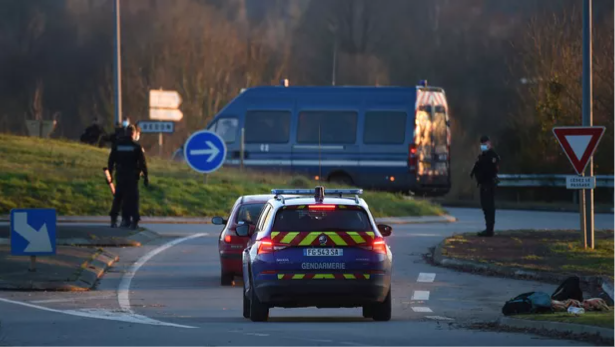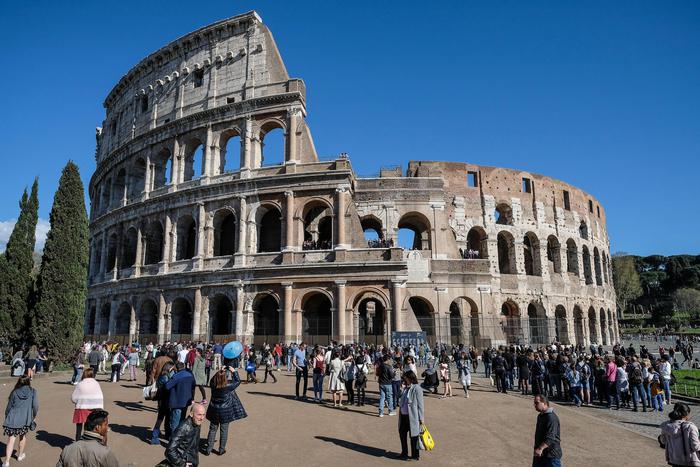Pierre-Marie Sève is general delegate of the Institute for Justice (IPJ), an association of citizens mobilized alongside the victims.
On Monday, violence broke out between young people and the police in Beauvais, in the Oise. The day before, three police officers were slightly injured by mortar fire. Has France fallen into endemic delinquency?
Yes.
Crime itself has become a real problem since the 1970s, with an unprecedented increase in the crime rate, which has multiplied by five.
The real novelty is that the phenomenon of delinquency today affects large towns, medium-sized towns but also smaller towns and even the countryside.
Like a disease, delinquency has necrosed territories for decades - the famous “lawless areas” - but it is beginning to nibble into peri-urban and rural areas.
This is new for rural areas, and it's a safe bet that the trend will continue to grow in the years to come.
To read also: Beauvais: police officers targeted by caillassages and fireworks mortars
How to explain that this insecurity is no longer confined to large cities?
For a long time, insecurity was the prerogative of large cities, this remains mostly the case since statistics show that large cities are more violent.
The offense of assault and battery, for example, is two to three times higher in large cities than in rural areas.
But indeed, everyone sees that the smallest towns are now affected.
The crime rate has increased fivefold since the 1970s
Pierre-Marie Sève
There are several explanations for this.
The first is that of a general bankruptcy of the immigration and integration policy which, in reality, never existed.
France has not had a migration policy since the 1970s. Immigration in France is individual and the state hardly controls it, which has led to an ever-increasing stacking of people from different cultures in neighborhoods still more numerous.
The proliferation of these difficult neighborhoods throughout France is the vanguard of delinquency now attacking small towns.
The figures are clear: from 170 Priority Education Zones in 1981 (ZEPs), we have grown to 751 sensitive urban areas in 1996 and to 1514 priority districts of the city.
The second explanation is the return of violence as a mode of conflict resolution.
The decline in the role of the state is the cause and the effect.
On this subject, the testimonies of the firefighters are eloquent when they report a generalization of violence that begins in difficult neighborhoods, but which is now also found in their interventions at "sir, madame everyone. ".
And then, even if it is a minor cause, social networks, by their instantaneity, have allowed an amplification of violent behavior through social mimicry.
To read also: "Delinquency in the countryside tilts France into a new insecurity"
These clashes would be a response to recent anti-drug operations carried out in several areas of the city, according to the mayor of Beauvais. Has drug trafficking decentralized?
Compared to the days of the Marseilles and Corsican mafias, it has effectively decentralized.
The drug market is now very flexible and has become somewhat democratized.
Many dealers work part-time and there is no letter of resignation or industrial tribunal when they change activity.
This flexibility associated with a high price of illicit substances allows the profitability of small volumes and therefore the explosion of the offer.
But beyond decentralizing, it has above all extended.
A few months ago, the Ministry of the Interior published the list of all the points of deal in France.
Dozens of rural departments have one or more deal points, which was not the case before.
The former prefect Michel Aubouin predicted it: the fight against the narcotic economy can be the spark which sets fire to the powders.
Indeed, the myth of drug trafficking as a “city peacemaker” is naive and harmful.
Maybe for a while.
But ultimately, it only displaces and amplifies delinquency elsewhere.
Drug trafficking has decentralized
Pierre-Marie Sève
For years, the spotlight has been on the Parisian suburbs, and billions have been dumped in urban areas. During this time, the public authorities seem to have abandoned the medium-sized towns and the countryside ...
City policy has had an overall cost estimated at 90 billion euros, which is considerable.
It is indeed a political force that has shone the spotlight more on the suburbs.
The problems existed - Seine-Saint-Denis remains one of the poorest departments in France - but there was a disproportion between the aid granted to the suburbs and that devoted to rural areas.
And yet, despite all this money, everyone recognizes that it was a failure on the whole line.
The feeling of injustice is completely understandable, it is rural workers, those who play by the rules and pay their taxes, who are penalized.
Can we speak of safe deserts?
This would not do justice to the gendarmes who are in charge of rural areas, but it is certain that the gendarmerie is not used to the new behaviors which are now taking place in the countryside and to which the police have long been accustomed in the cities.
Changes may be necessary: there are, for example, nearly twice as many police officers as gendarmes, while each is in charge of roughly equivalent population pools.
Indeed, if nothing is done, the countryside will become safe deserts, but public accounts will have to follow.
We too often forget that delinquency and criminality have a cost to society.
The economist Jacques Bichot had published a study which estimated the cost of crime and delinquency at 234 billion euros.
It's a vicious circle.










/cloudfront-eu-central-1.images.arcpublishing.com/prisa/2C5HI6YHNFHDLJSBNWHOIAS2AE.jpeg)




